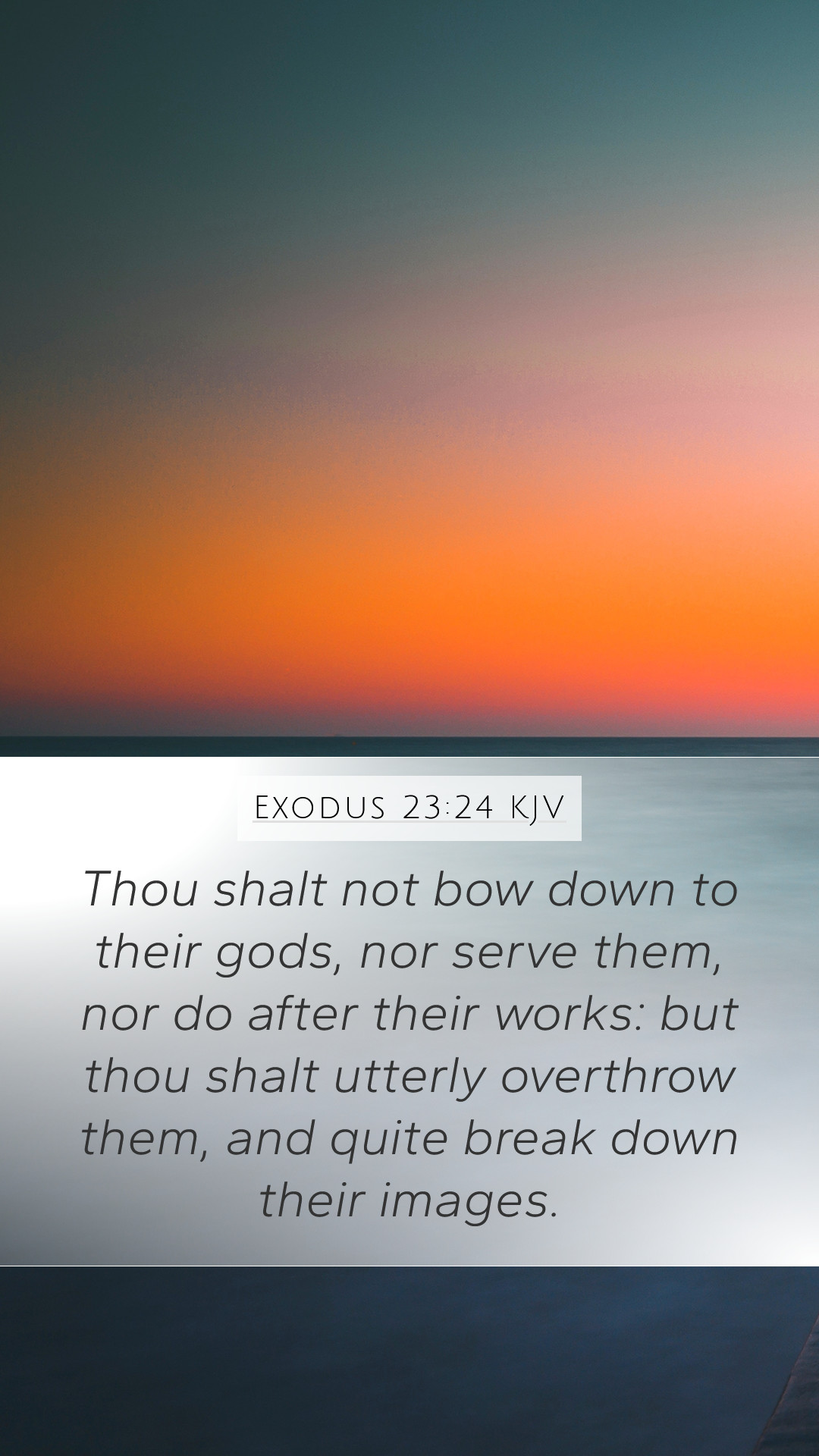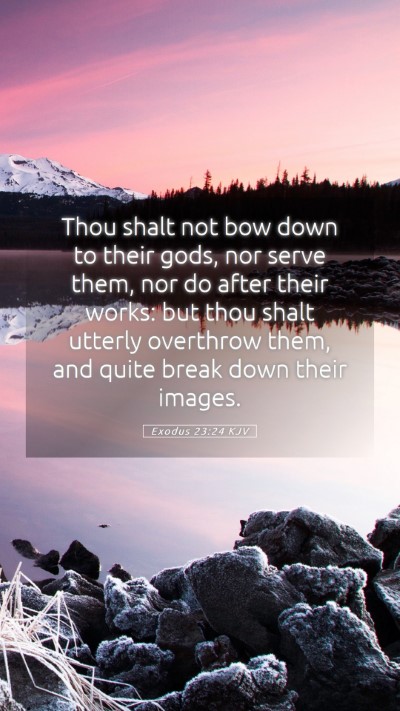Understanding Exodus 23:24
Bible Verse: Exodus 23:24
“Thou shalt not bow down to their gods, nor serve them, nor do after their works: but thou shalt utterly overthrow them, and quite break down their images.”
Summary and Meanings from Public Domain Commentaries
Exodus 23:24 provides a commanding directive regarding the worship of foreign gods and the practices surrounding them. The verse serves as a powerful reminder to the children of Israel about their exclusivity in worshiping the one true God and forbids any engagement with the idolatry characteristic of the nations they are to inhabit. The following commentary highlights the various aspects of this verse as interpreted by respected biblical scholars.
Commentary Insights
-
Matthew Henry's Commentary:
Matthew Henry emphasizes the gravity of adhering to God's commandments regarding idolatry. He suggests that serving foreign gods is a betrayal of the covenant relationship between God and His people. Henry notes that the instruction to “overthrow” the idols and “break down” their images signifies a complete renunciation of false worship, underscoring the imperative for the Israelites to maintain spiritual purity and devotion to God alone.
-
Albert Barnes' Notes:
Barnes highlights the prohibition against bowing down to the gods of other nations. He interprets this as a call for the Israelites to maintain their distinct identity and worship practices. Barnes remarks on the importance of total destruction of idols, which serves not only as a physical act but also as a spiritual safeguard against the corruption that could lead to infidelity to God.
-
Adam Clarke's Commentary:
Adam Clarke provides a historical context regarding the occurrence of idolatry among neighboring nations. He discusses how the Israelites were often tempted by the allure of surrounding pagan cultures. Clarke points out that the act of “breaking down” images was a declaration of God’s sovereignty and a call to righteous living. He emphasizes that yielding to such temptations not only invited judgment but also jeopardized the unique blessing upon Israel.
Significance of the Verse
This verse is significant as it lays down a foundational principle for the Israelites as they entered the Promised Land. It sets a tone for exclusivity in worship and the rejection of other deities, which is crucial for preserving their identity as God's chosen people. The underlying message is the necessity of spiritual integrity and the rejection of practices that would lead them away from divine instruction.
Related Concepts and Themes
- Idolatry: A recurring theme throughout the Bible, where worshiping anything other than God leads to severe consequences.
- Covenant Relationship: The idea that Israel was in a unique relationship with God, marked by commitment and loyalty.
- Spiritual Purity: The necessity for the Israelites to keep themselves free from corrupting influences that could dilute their faith.
Application to Modern Life
Understanding Exodus 23:24 can guide modern believers in examining their own lives for potential "idols"—anything that distracts from a devoted relationship with God. This could be materialism, secular ideologies, or cultural practices that conflict with biblical teachings. The call to “overthrow” symbolizes a proactive approach to rejecting anything that does not align with one's faith.
Cross References
- Deuteronomy 7:5 - Instruction on dealing with the idols of the nations.
- 1 John 5:21 - A warning against idolatry in the New Testament context.
- Isaiah 44:9-20 - An illustration of the foolishness of idol-making.
Conclusion
In light of this analysis, Exodus 23:24 serves not only as a historical directive for the Israelites but also a timeless exhortation for all believers today. The call for devotion to God and the rejection of all forms of idol worship remains relevant, urging us to reflect on the idols within our lives and to strive for a deeper connection with the divine.


